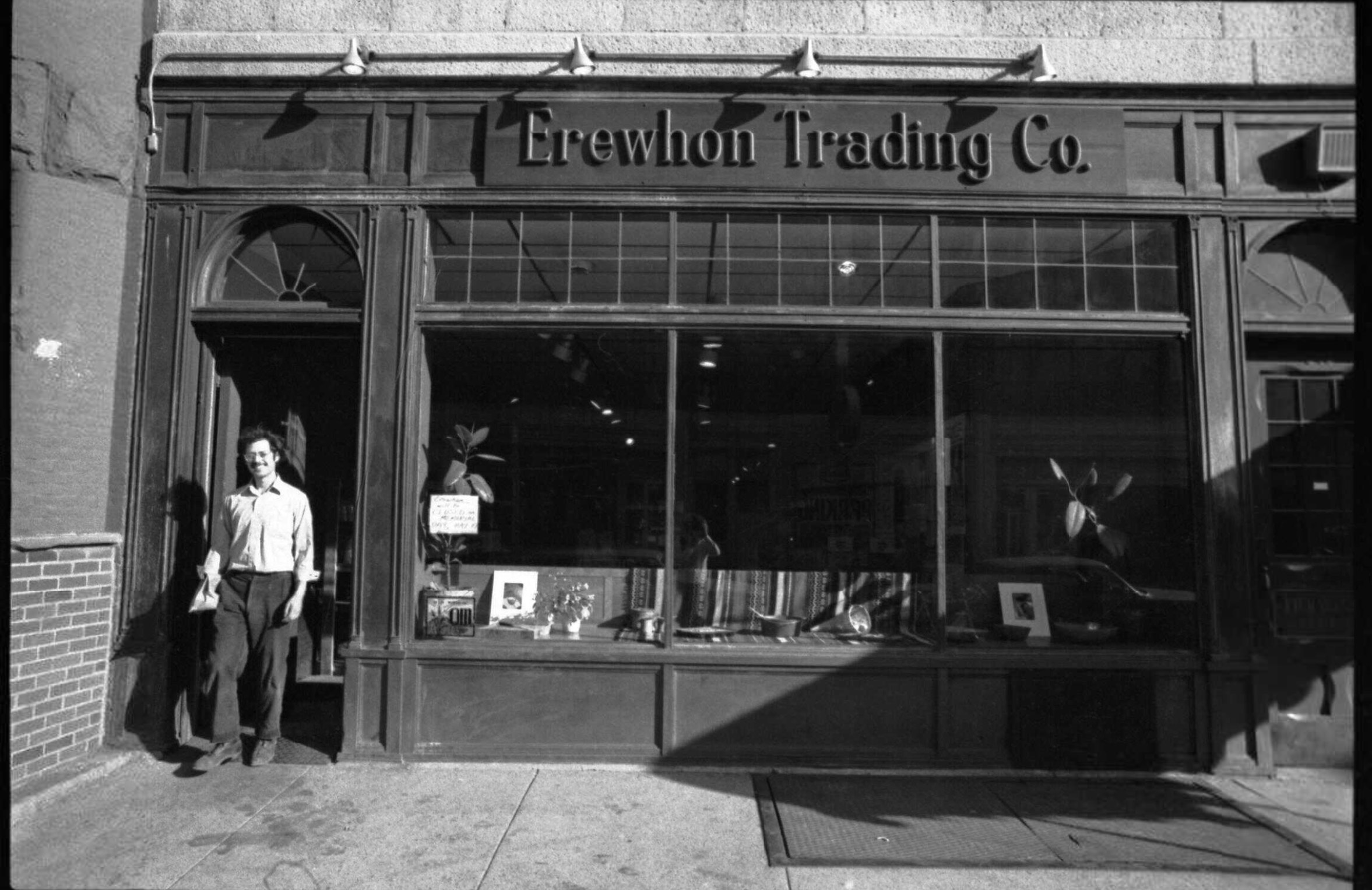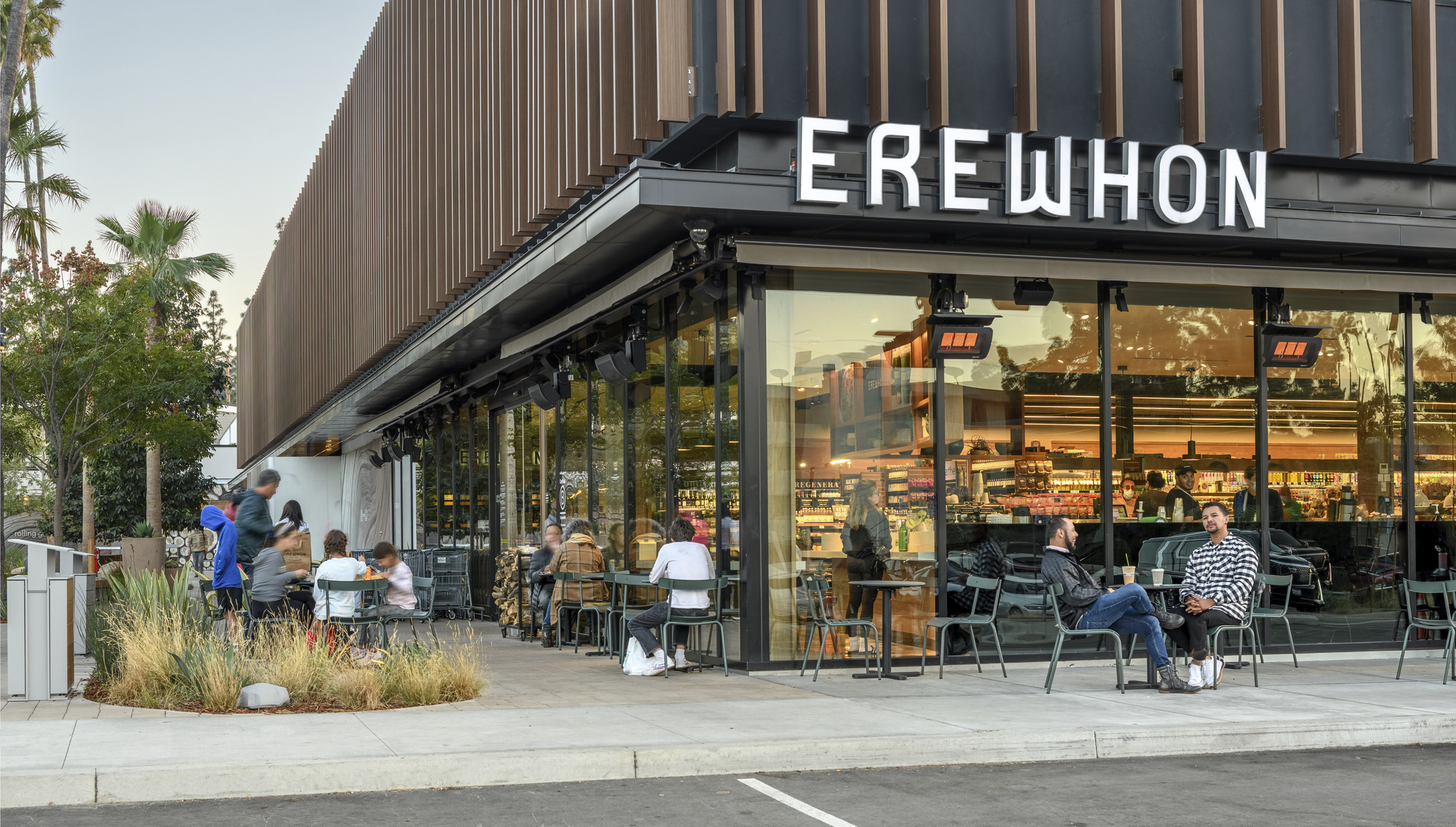Would you believe a grocery store could become a cultural phenomenon, a haven for the health-conscious, and a playground for the wealthy, all while selling organic granola and raw milk? Erewhon Market, with its cult-like following and premium prices, has achieved exactly that, transforming the way many view health food and the very essence of grocery shopping in Los Angeles and beyond.
The story of Erewhon began in 1966, far from the glitz and glamour of Hollywood, in the heart of Boston, Massachusetts. It was here that Japanese immigrants Michio and Aveline Kushi, driven by their passion for macrobiotic principles, opened the first Erewhon store. This initial venture was more than just a grocery store; it was a pioneering effort, introducing concepts like organic produce and macrobiotic diets to a mainstream audience that was largely unfamiliar with such ideas. Even then, it stood out as a beacon of a different approach to food and wellness. The name itself, derived from Samuel Butler's satirical novel "Erewhon," an anagram for "nowhere," perfectly captured the store's vision: a utopian ideal where individuals were responsible for their own health.
| Category | Details |
|---|---|
| Founders | Michio Kushi and Aveline Kushi |
| Year of Foundation | 1966 |
| Original Location | Boston, Massachusetts |
| Core Philosophy | Macrobiotic diet and organic living |
| Key Products Introduced | Miso, tofu, seitan (first distributor in America) |
| Current Owners | Tony and Josephine Antoci (since 2011) |
| Number of Employees | Approximately 575 (as of available data) |
| Estimated Revenue | $194.1 million |
| Current Locations | Primarily in Los Angeles, California, with expansion plans. |
| Website | Erewhon Market Official Website |
Erewhon's journey wasn't a straight path to success. After its Boston debut, the store made its way to Los Angeles, where it would truly flourish. In a city known for its health-conscious residents and trendsetting culture, Erewhon found fertile ground. It became a rare provider of natural and organic foods, sourcing products that were often difficult to find elsewhere. This was a time when the concept of organic was still relatively new, and Erewhon was at the forefront, educating and inspiring a generation of health-minded consumers.
The move to Los Angeles marked a significant turning point. Erewhon West, the first location in the area, became a haven for those seeking alternatives to conventional groceries. The store's commitment to sourcing high-quality, organic products quickly garnered a loyal following. This was the era when Erewhon established its identity, not just as a grocery store, but as a lifestyle brand. They weren't just selling food; they were selling a vision of health, wellness, and a connection to the earth.
However, the story of Erewhon also includes shifts in ownership and evolving business strategies. In 2011, Tony and Josephine Antoci acquired the business, ushering in a new era of expansion and modern retail strategies. This marked a pivotal shift toward the "hype era" as Erewhon was transformed into the premium brand it is today. Their leadership embraced innovative retail design and curated a selection of products that catered to the evolving tastes of their clientele.
Erewhon's appeal isn't solely based on its curated selection of organic and sustainable products. The stores themselves are carefully designed, creating an inviting and aesthetically pleasing atmosphere. The integration of cafes, juice bars, and tonic bars within the stores provides an all-encompassing experience. They have collaborated with retail design firms and architects, ensuring that each location embodies the Erewhon ethos: a commitment to quality, wellness, and a radiant lifestyle. This multi-faceted approach reinforces the notion that Erewhon is more than just a place to shop; its a community.
The brand's success isn't without its critics. The prices, often significantly higher than those of conventional grocery stores, have led to accusations of elitism. The focus on premium products and a specific aesthetic has drawn comparisons to other high-end retailers. The marketing, with its emphasis on "ecologically righteous wares," has been described as reminiscent of "green marketing" from decades prior. The use of hyperbole and unverifiable claims has raised consumer skepticism. The fact is that Erewhon is an experience, not just a shopping trip, and the price reflects that.
Despite the criticism, Erewhon continues to thrive, particularly in the Los Angeles market. It has become a favorite of Hollywood celebrities, who have helped propel its popularity. The chains commitment to providing exceptional organic products has resonated with a wide audience, including those seeking alternatives to mass-produced food. Erewhon has successfully created a brand that embodies a vision of a healthier lifestyle, inspiring a devoted following that keeps growing with each new store opening.
The original vision of the Kushispioneers of the macrobiotic diet and advocates for organic producecontinues to shape Erewhon's identity. Beyond their commitment to organic produce, they were early importers of products like miso, tofu, and seitan into the Western mainstream market, influencing how we eat and what we consider healthy. This heritage continues to influence the store's product selection. It showcases the evolution of health food, influencing consumers and shaping how we view our food choices.
Erewhon's impact reaches beyond its stores. The company actively engages in supporting local communities, demonstrating their commitment to their values. For example, when a wildfire devastated the Palisades community, the company created a special "LA Strong" smoothie, with 100% of the proceeds going to relief efforts. This dedication to the environment, as well as the welfare of the planet, has resonated with customers, and helped it become a certified B Corp, further solidifying its commitment to social and environmental responsibility.
The upscale grocery store chain, which started as a small market stall, has expanded and adapted to the changing retail landscape. The opening of new locations, like the one in Manhattan Beach scheduled for March, signifies its continued growth. Erewhon is not just a trend; its a movement, and a lucrative business. The model is so successful that other stores in the area are closing to make way for new Erewhon locations. The expansion continues with a fourth location opened recently at 2800 Wilshire Blvd.
The story of Erewhon is a fascinating case study in branding, marketing, and consumer behavior. It is a tale of a small market stall that grew into a cultural phenomenon. The name, a nod to a utopian ideal, reflects the companys vision. It is a testament to the power of a clear mission, a commitment to quality, and the ability to cultivate a strong community. Erewhon stands as a prime example of how a business can not only thrive but also redefine what it means to be healthy, and in doing so, transform the very essence of the grocery shopping experience.
While some may balk at the price tags, the reality is that Erewhon offers an experience. It provides a meticulously curated selection of organic and sustainable products, an aesthetically pleasing environment, and a community that shares a common love for pure, healthy products. As Erewhon looks ahead to 2025 and beyond, its influence on the health food landscape and the evolution of how we eat is set to continue, solidifying its place as a pioneer in the world of premium grocery.


